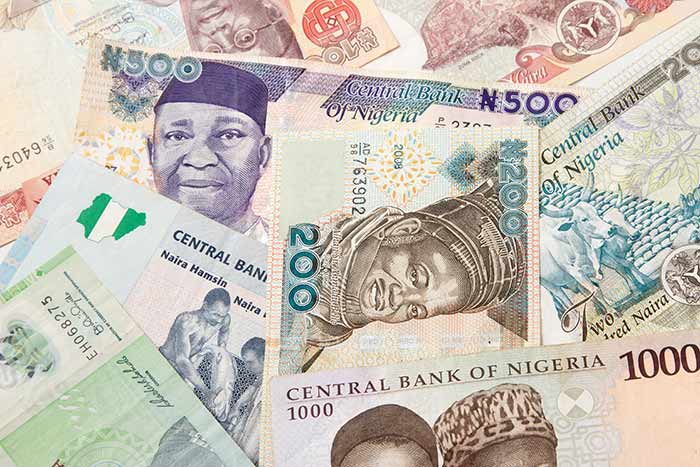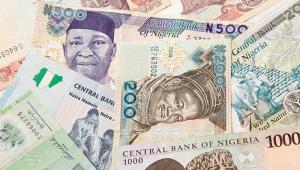web_nigeriannaira_shutterstock_200751113.jpg

Nigerian naira
The figures, published by the country’s Debt Management Office yesterday, included $13.8bn in international debt, as well as $39.1bn of domestic debt accrued by the federal government and close to $10m accrued by states.
It marks an increase of $5.5bn since the end of last year, and highlights the government’s bid to use a series of record-breaking budgets to revive an economy battered by the slump in oil prices, militant attacks on oil infrastructure and chronic shortages of foreign currency.
Nigeria has a relatively low debt profile compared to other African nations, reaching just 18.6% last year. However the IMF has noted that this is forecast to rise quickly to 24.9% as both federal and state authorities work to finance growing deficits.
This year’s budget is worth an unprecedented $23bn, with the deficit set to grow from $7bn to $7.5bn.
The country has already issued bonds worth $1.5bn this year, with much of the proceeds set to go towards financing an ambitious plan of infrastructure investment.
As well as concessional loans from a number of international institutions such as the World Bank and African Development Bank, and other nations, including Japan, Germany and India, the country owes billions of dollars to China’s export-import bank for infrastructure projects.
According to the budget, debt servicing costs will take up 33% of revenues this year, and will increase 22% on 2016.












